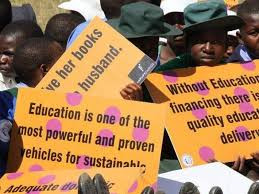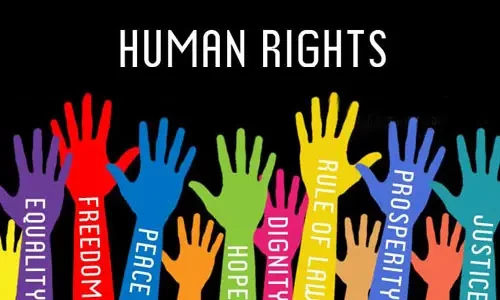
A United Nations agency said this week that half-a-million local children of school-going age are out of school.
The statistics, revealed by the United Nations Children’s Emergency Fund (Unicef), came as Zimbabwe joined the rest of the world on Wednesday in commemorating the International Day of Education, a date set aside by the UN General Assembly to celebrate the role of education in peace and development.
“Only six children out of 10 aged three to five are enrolled in pre-primary education and an estimated half a million children of primary and lower secondary school age are out of school. This data reminds us to continue to work together under the leadership of the Primary and Secondary Education ministry to address the challenges that keep children out of school,” Unicef country representative Tajudeen Oyewale said in a statement.
These statistics are enough to jolt the government into action, more so, when legislation stipulates that every child should have access to education.Section 4(1) of the Education Act stipulates that every child in Zimbabwe shall have the right to school education. The same legislation states that no child shall be refused admission to any school; or be discriminated against by the imposition of onerous terms and conditions regarding his or her admission to any school on the grounds of his race, tribe, place of origin, nationality or ethnic origin, political ,opinions, colour, creed or gender.
Government should take action to ensure that all children of school-going age are in class which should galvanise its fight against drugs and substance abuse.It should interrogate why these children are out of school. Is it due to the economic crisis which has made it impossible for parents or guardians to pay fees? Is it because there are few schools and children must walk long distances to and from school and some will inevitably drop out? It is because of child marriages, especially among the apostolic sects, that have kept girls out of school.
A holistic approach is needed to address the root cause of the problem instead of pursuing the symptoms.It cannot be business as usual when 500 000 children of school-going age are out of class. The basic education assistance module (Beam) is one tool which government can use to ensure children from disadvantaged families go to school. However, government has been struggling to pay under Beam, leaving schools incapacitated.
The recent amendments to some sections of the Criminal Law (Codification and Reform) Act provide for the protection of the girl child from child marriages.In the new law, anyone having an affair with a young person, including physical contact, soliciting or enticing a person below 18 years for sexual intercourse would be found guilty and liable to a fine not exceeding level 12 or imprisonment for a period not exceeding 10 years or both.
This legislation will protect the girl child from sex predators that are mostly found in the apostolic sects.As government pores over worrying statistics revealed by Unicef, it should not be lost that inclusive education is not a luxury but a fundamental human right.
- Too young to marry: The secret world of child brides
- New law answers exhumations and reburials question in Zim
- Too young to marry: The secret world of child brides
- New law answers exhumations and reburials question in Zim
Keep Reading
It should be government’s obligation, working with development partners, to ensure that every child of school-going age is in class.











